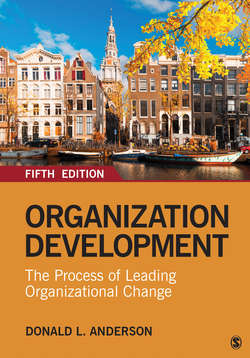Читать книгу Organization Development - Donald L. Anderson - Страница 16
На сайте Литреса книга снята с продажи.
Example 3: Team Development in a Cancer Center
ОглавлениеHealth care workers who have the challenge of caring for critically ill patients experience stress, emotional exhaustion, and burnout at very high rates compared with workers in other fields. Without social support from friends or other coworkers, many workers seek to leave the field or to reduce hours to cope with the emotional exhaustion of such a demanding occupation. Consequently, many researchers have found that health care workers in particular need clear roles, professional autonomy, and social support to reduce burnout and turnover.
In one Canadian cancer center (Black & Westwood, 2004), a senior administrator sought to address some of these needs by creating a leadership team that could manage its own work in a multidisciplinary team environment. Team members would have professional autonomy and would provide social support to one another. Leaders volunteered or were chosen from each of the center’s main disciplines, such as oncology, surgery, nursing, and more. Organization development consultants were invited to lead workshops in which the team could develop cohesive trusting relationships and agree on working conditions that would reduce the potential for conflict among disciplines.
In a series of three 2-day workshops over 3 months, the team participated in a number of important activities. Members did role play and dramatic exercises in which they took on one another’s roles in order to be able to see how others see them. They completed surveys of their personal working styles to understand their own communication and behavior patterns. The team learned problem-solving techniques, they clarified roles, and they established group goals.
Three months after the final workshop was conducted, the facilitators conducted interviews to assess the progress of the group. All of the participants reported a better sense of belonging, a feeling of trust and safety with the team, and a better understanding of themselves and others with whom they worked. One participant said about a coworker, “I felt that [the workshops] connected me far differently to [a coworker] than I would have ever had an opportunity to do otherwise, you know, in a normal work setting” (Black & Westwood, 2004, p. 584). The consultants noted that participants wanted to continue group development on an ongoing basis.
